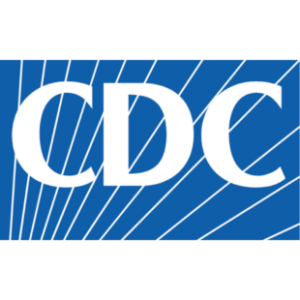AMDA expands membership to practitioners
The Society for Post-Acute and Long-Term Care Medicine (AMDA) announced the formation of a Practice Management Section, a national forum for practitioner-led post-acute and long-term care (PA/LTC) population management, today at its 40th annual conference in Phoenix. This mechanism for expansion of the organization’s membership base sets the stage for the Society’s evolution from representing primarily 5,000 medical directors, to also speaking for the 50,000 practitioners who work in PA/LTC settings.
Commenting on the initiative, Society President Susan Levy, MD, CMD, said, “This is the next important step in the evolution of AMDA. We changed our name and broadened our focus in 2014 with the specific goal of influencing the care provided by the many practitioners across PA/LTC in addition to representing the nation’s nursing home medical directors. Our new Practice Management Section sets the stage to make that happen, and we’re very excited by the possibilities this represents to advance our mission.”
In establishing the new Section, the Society is partnering with the Vision Group, a coalition of PA/LTC physician practices. Together, the organizations’ goals for the Section include:
- Advocate for the PA/LTC practitioner by promoting regulatory changes and policies that facilitate delivery of appropriate, high-quality medical care in the PA/LTC setting focusing on PA/LTC as a specialty, Medicare Access and CHIP Reauthorization Act (MACRA)-related issues, appropriate reimbursement specific to PA/LTC settings, electronic health record use and connectivity and promotion of coordinated care throughout the continuum.
- Communicate and strengthen relationships with Capitol Hill and federal agencies; organizations representing PA/LTC vendors; and other healthcare specialties and providers including nurse practitioners, physician assistants, hospitalists, behavioral health and palliative care practitioners.
- Develop and update recommended practice management models for medical professionals working in PA/LTC including administrative strategies, measures and benchmarks to monitor quality.
- Educate practice management leadership, PA/LTC practitioners, and other stakeholders by developing and refining clinical and regulatory educational programming necessary to develop/maintain a high-quality workforce, and promoting insight, awareness, and relationships necessary for caring for our patient/resident population in evolving delivery models.
- Assist practices with the implementation of value-based purchasing and population management strategies. The complexities of The Centers for Medicare & Medicaid Services regulations require specific skills for PA/LTC practices to achieve successful delivery of high-quality, low-cost, patient-centered services, while assuming risk.
The Vision Group is led by Robert J. Reynolds, MD, who will also be Chairing the Practice Management Section. “In long-term care settings, our providers manage the largest number of chronically ill, highest need, disadvantaged patients during the final years of their lives. These are the highest cost patients in our nation’s healthcare system,” Reynolds said. “We welcome the rollout of CMS value-based reimbursement programs, and our intent is to assist the Society in addressing unintended challenges and barriers imposed upon these providers as they work to achieve improved quality and lower costs of care as defined in value-based programs.”
The new Practice Management Section members will also be members of the Society and have representation on the Society’s Board of Directors, Public Policy, Education and other committees. On March 15, in conjunction with the Vision Group annual meeting, an informational session and reception will be held, introducing the Section prior to the Society’s Annual Conference.
The Society was officially chartered in 1977 as the American Medical Directors Association, representing and providing a professional home for nursing home medical directors. Over the years, the Society has continued to expand its focus to include all PA/LTC practitioners and settings of care while providing education, professional development, advocacy, networking and clinical resources specific to PA/LTC.
In 2014, the Society House of Delegates voted to change its name from AMDA – Dedicated to Long-Term Care Medicine, to AMDA – The Society for Post-Acute and Long-Term Care Medicine and to expand voting membership to include nurse practitioners (NPs) and physician assistants (PAs). This move reflected the increasing prominence of post-acute care in the long-term care continuum, and the growing importance and roles NPs and PAs have in PA/LTC settings.
“We are proud to create our new Practice Management Section in partnership with Dr. Reynolds and the Vision Group practices. These practitioner groups have a long and deep experience in PA/LTC,” said Society Executive Director Christopher E. Laxton, CAE. “Together, we now have the scope to make significant improvements in patient and resident care across PA/LTC while improving individual patient experience and lowering the overall costs of care.”
The Vision Group was formed in 2008 as a coalition of five large post-acute physician practice groups working in nine states that employ hundreds of providers. The purpose has been to assist providers and practice managers in understanding and complying with Medicare rules and regulations as they apply to the practice of post-acute/long-term care medicine and to promote advocacy on their behalf. The Vision Group now includes members from multiple organizations involved in PA/LTC medicine, representing around 3,000 providers across the US. For more information, visit www.paltc.org/practice-management-section.
Related Articles
Topics: Leadership











